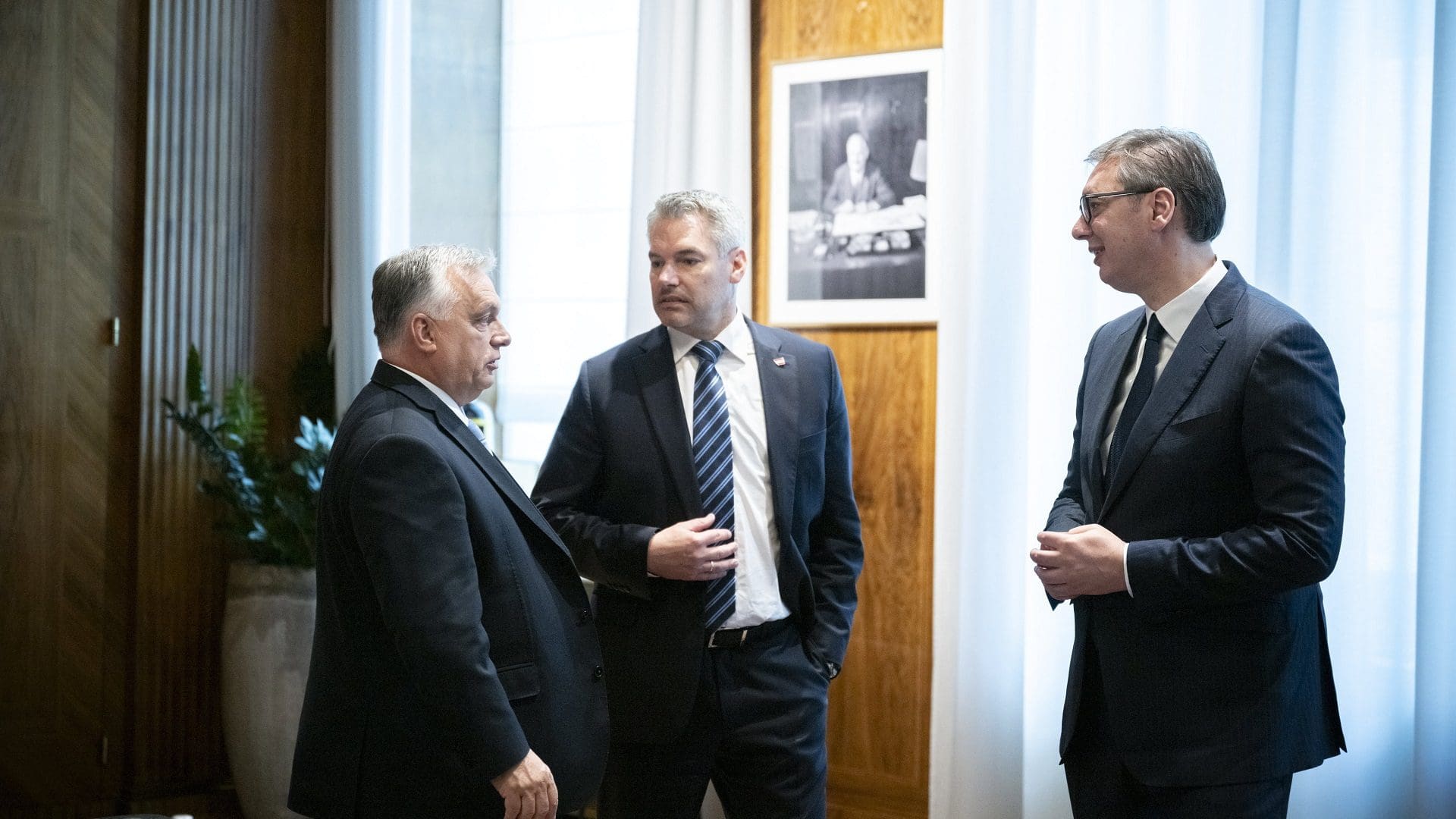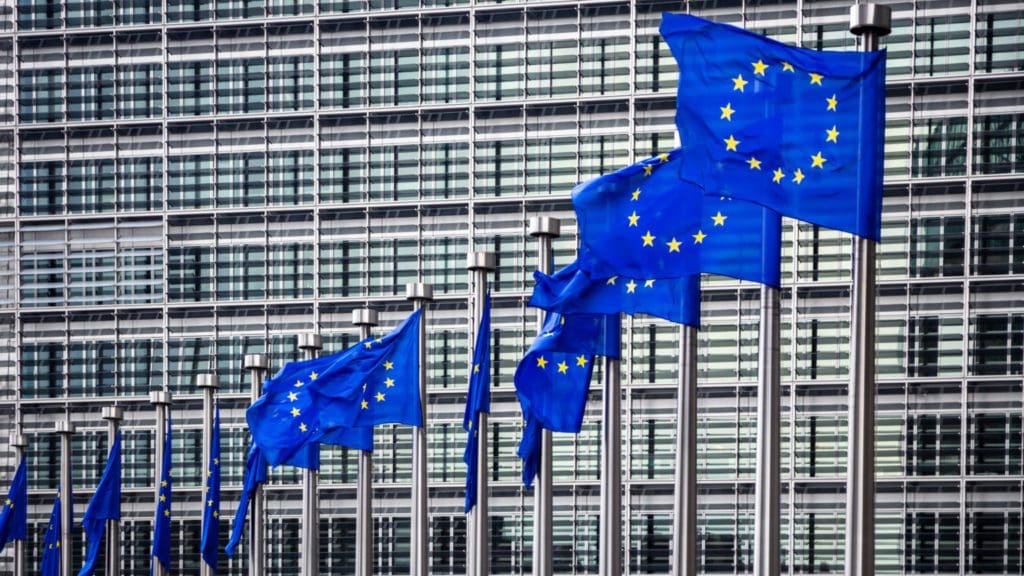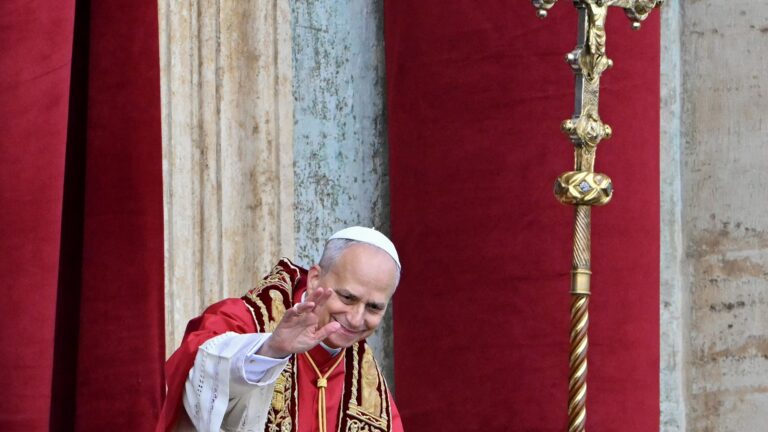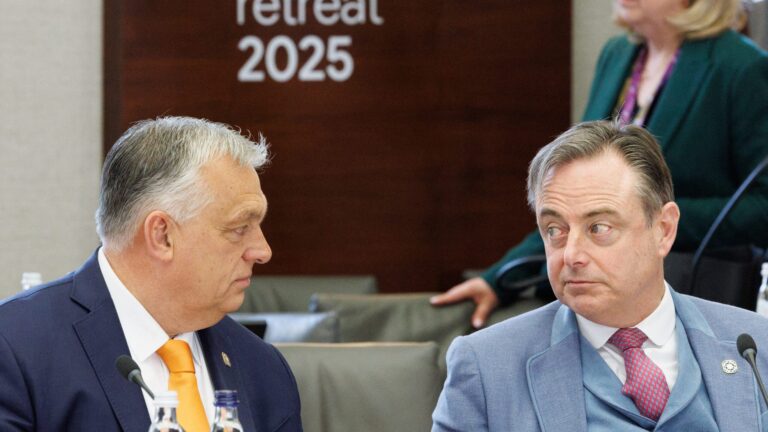The following is a translation of a press release kindly provided to us by the Migration Research Institute.
Austrian Chancellor Karl Nehammer of the Austrian People’sParty (ÖVB) party received Hungarian Prime Minister Viktor Orbán and Serbian President Aleksandar Vučić on 7 July. This was not the first time the Chancellor of Austria hosted a discussion about fighting against the irregular migration occurring on the Balkan route, with the same participants present.
The migration summit involving the three nation’s heads of state and government was first held in Budapest, Hungary in October 2022, which was followed by a summit in Belgrade, Serbia a month later. At the event in Vienna—much like at the ones in Budapest and Belgrade—the opportunities of joining forces against illegal migration and human smuggling were discussed.
The tripartite meeting has been criticised by a number of international organisations and Austrian political parties, including ÖVB coalition partner The Greens. However, the Chancellor of Austria defended the cooperative effort on migration, and also stood by its heavy criticism of the EU’s migration system, stressing the importance of the trilateral collaboration. As Chancellor Nehammer put it at the international press conference following the summit:
‘We must support those who defend their borders. Until the EU takes sufficient measures, we must help ourselves out.’
He went on to emphasise that the Vienna conference further reinforced the already existing entente between the three countries, and put additional stops to migration. In addition, he also pointed out that illegal migration should be halted before it reaches Europe, and, in relation to all this, he highlighted the importance of the increased level of cooperation with safe third countries.
The Chancellor of Austria thanked Hungary for its fight against human smuggling networks,
then expressed appreciation of Serbia relinquishing visa requirements for the citizens of certain countries such as Tunisia and India. The latter resulted in a 30 per cent drop in asylum applications submitted in Austria. According to the Chancellor, this is evidence of the success of the cooperation on migration.
At the Vienna migration summit, Prime Minister Viktor Orbán of Hungary voiced criticism about the new migration package currently being drawn up by the EU. As he put it, the ‘forced distribution’ included in the pact is technically a letter of invitation to the migrants heading towards Europe, therefore ‘Hungary
will find the legal and political methods to not execute Brussels’ decisions’.
Orbán Viktor on Twitter: “Migration summit in #Vienna with Chancellor @karlnehammer and President @avucic . Hungary must defend itself not only against human traffickers and illegal migrants, but also against Brussels. I made it clear today: we will continue to defend the borders of the #EU, and we will… pic.twitter.com/Rw8TThUgxe / Twitter”
Migration summit in #Vienna with Chancellor @karlnehammer and President @avucic . Hungary must defend itself not only against human traffickers and illegal migrants, but also against Brussels. I made it clear today: we will continue to defend the borders of the #EU, and we will… pic.twitter.com/Rw8TThUgxe
Reflecting on the Hungarian model based on legal and physical safety, he stated that if not for the border protection efforts of Hungary and Serbia, there would be hundreds of thousands of more illegal migrants in Austria, Germany, and the Netherlands. He added that 330,000 illegal immigrants were stopped at the external borders of the European Union in 2022. The leader of the Freedom Party of Austria (FPÖ), Herbert Kickl, has called on the Chancellor of Austria to adopt the Hungarian model.
The parties also agreed at the summit that in order to further increase the level of cooperation, two task forces will be established. These task forces will contribute to border security and fighting against human smuggling networks. The Austrian Chancellor pointed out that the collaboration of the three nation’s law enforcement agencies has been successful, however, even closer cooperation will be needed in the future.
Related articles:







